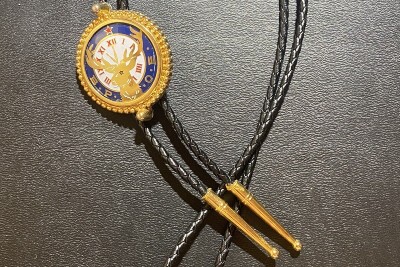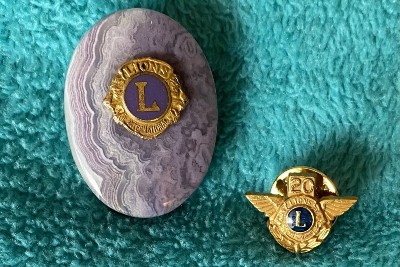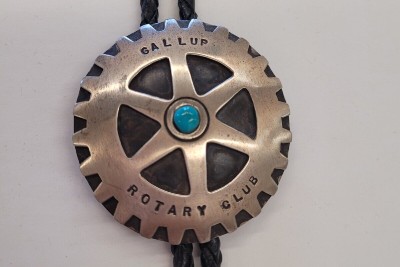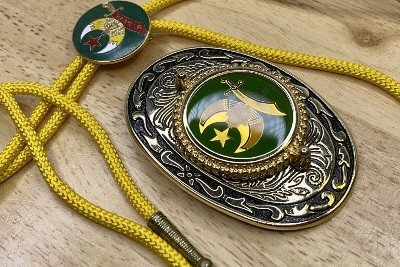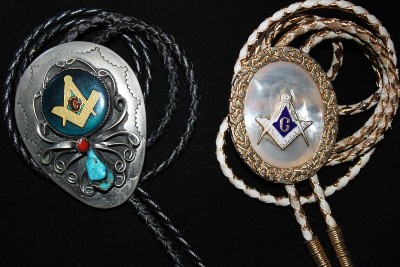Affiliate Disclaimer: We work to provide bolo ties and locate merchants who sell the products you are looking for. If you make a purchase from any of the merchants we endorse, we will earn a small commission at no additional cost to you. Thank you for your support!
Cherished Objects from Elks, Kiwanis, Shriners, Rotary & More Through the Years
Preserving History and Service Through Fraternal Collectibles
The rich histories of fraternal organizations like the Elks, Kiwanis, Shriners, Rotary, and Freemasons live on through cherished collectibles that offer a visual journey through their iconic traditions and philanthropy. Badges, pins, medals, and historic documents provide a treasure trove for enthusiasts to assemble. Ceremonial items like swords, robes, bolos and fezzes transport collectors back to the earliest days of these orders. While artifacts directly linked to specific movers and shakers in their past have particular allure, even local histories come alive through vintage photos, ledgers, and objects from a hometown chapter's past. For members and aficionados alike, these collections provide a tangible connection to fraternal bonds and service legacies that have shaped communities around the world.
Proud Histories of Brotherhood and Service
While service clubs and fraternal organizations seem ubiquitous today, many actually have long, rich histories giving back to society. Groups like the Elks Lodge, Kiwanis, Shriners, Rotary International, and Freemasons have venerable traditions dating back over a century. They play major roles in local communities across America and worldwide through committed fundraising, hands-on volunteering, networking, mentoring initiatives and impactful charitable projects. These organizations form meaningful brotherhoods and demonstrate fraternal bonds while also improving lives.
The Elks: Honoring Traditions, Improving Lives Since 1868
The Benevolent and Protective Order of Elks began in 1868 as a social club in New York City before evolving into one of the largest and premier charitable fraternal orders. The Elks have funded major projects like soldier aid during WWII and sponsor programs helping today's veterans, children with disabilities, and youth leadership development while also supporting vision research.
With nearly 1 million members across over 2,000 lodges nationwide, the Elks boast a proud 150-year history of philanthropy and service. Some of their most notable charitable works include building soldier hospitals during World War I, establishing the Elks National Foundation in 1928, and being one of the first organizations to support youth scholarships. The Elks also provide event venues, sports programs, family activities, and networking for members across hundreds of American communities. Bound by shared ideals of charity, justice, brotherly love and fidelity, the Elks continue making a difference for veterans, youth, seniors, and families nationwide.
Kiwanis: Civic-Minded Professionals Coming Together to Help Kids
Kiwanis International started in 1915 in Detroit, Michigan with aims to improve communities by providing networking and involvement opportunities for professionals and business leaders. Kiwanis clubs around the world have raised over $1 billion for impactful initiatives helping children, including a global campaign that eliminated iodine deficiency.
Today, Kiwanis International represents over 600,000 members in 80 nations focused on service, leadership development, and philanthropy. Some of Kiwanis' most impactful service campaigns have given tetanus vaccines to over 100 million mothers and babies worldwide, provided school supplies for disadvantaged students, and sponsored over 150,000 service projects annually that better local communities. True to their motto of "Serving the Children of the World," Kiwanis clubs also sponsor youth programs like Key Clubs to develop future generations of leaders and humanitarians. Through networking events, volunteering, and fundraising, Kiwanis members form meaningful connections while creating real change.
The Fez-Wearing Humanitarians: How the Shriners Help Millions
The Ancient Arabic Order of the Nobles of the Mystic Shrine for North America, known as Shriners, supports one of the largest pediatric health systems in the world. Through its network of over 190 Masonic hospitals and burn centers across North America, the iconic Shriners provide completely free expert medical care to millions of children in need. Their specialized burn and orthopedic hospitals have helped children with cleft lips, limb disabilities, spinal issues, and severe burns since 1922. Famously identifiable by their red fezzes, this fraternity of fun-loving brothers has a serious mission of compassion that touches lives every day.
Lions Clubs: Building Connections, Changing Lives for 100 Years
Lions Clubs International was founded in 1917 by Melvin Jones, who brought groups of businessmen together to expand their public service efforts. This new organization grew rapidly in the 1920s, becoming international with clubs in China, Mexico and Europe. Today, Lions Clubs forms a global network of over 1.4 million members across 200 countries. The over 48,000 local Lions clubs worldwide focus on community service through hands-on volunteer projects, fundraising initiatives, and youth programs based on local needs. Major focus areas include sight preservation, disaster relief, hunger relief, and partnerships that further Lions' humanitarian impact.
Lions Clubs are open to anyone looking to serve their community and make a difference. Membership provides friendship, networking and the chance to support worthy causes locally and globally. Notable Lions alumni include prominent figures like Jimmy Carter, Helen Keller, and Kenny Rogers. With their motto "We Serve," Lions Clubs International provides resources to help clubs carry out meaningful service worldwide. Even after a century, Lions continue building connections that empower volunteers to meet ever-changing community needs.
Rotary: Professionals Taking Action to Solve Humanitarian Challenges
Rotary International brings together business, professional, and community leaders to promote peace, international connections, and service to humanity. Rotary clubs have supported many humanitarian causes globally such as providing clean water, education, sanitation infrastructure, and job training across the world. Their PolioPlus program has played a major role in eradicating polio through mass immunization campaigns.
While their internal rituals and processes remain private, the Masonic Lodges or Freemasons constitute one of the oldest known fraternities in the world. Originating from medieval stonemasons guilds, Freemasonry uses builder symbolism and philosophies to encourage civic involvement and moral uprightness among members. The many branches of Masons collectively donate over $2 million daily to a wide array of charitable causes.
Conclusion
With amazing legacies of commitment, philanthropy and service to humanity, these fraternal and service organizations demonstrate the immense positive impacts possible when groups join forces for good. Their continued work strengthens both local communities and the global society.
